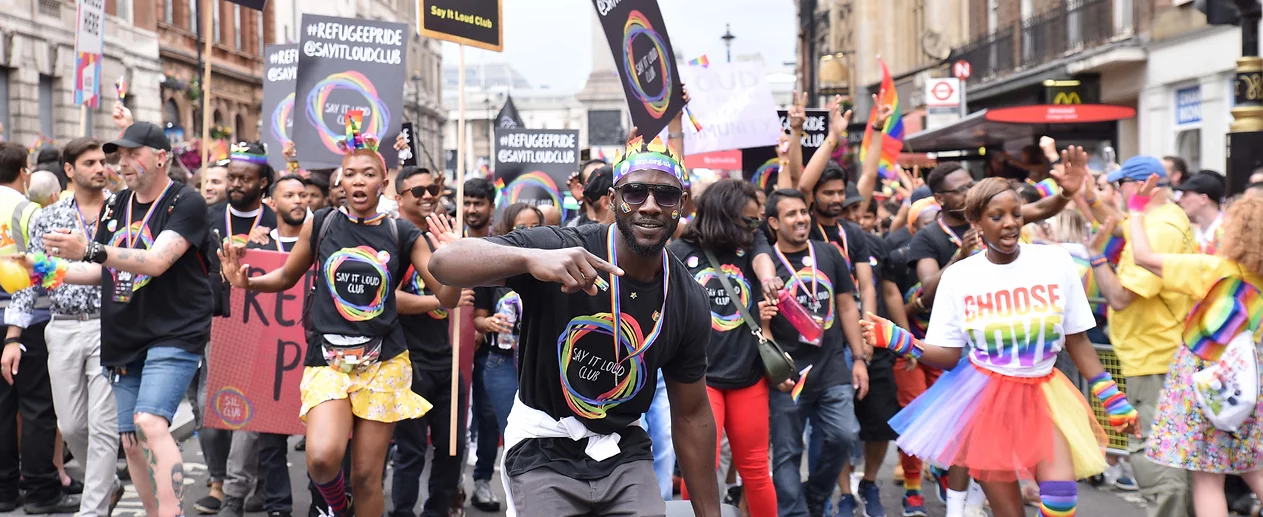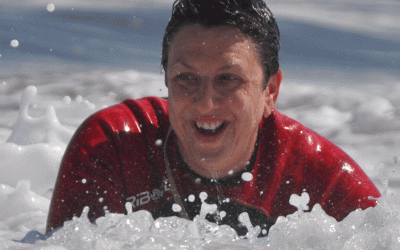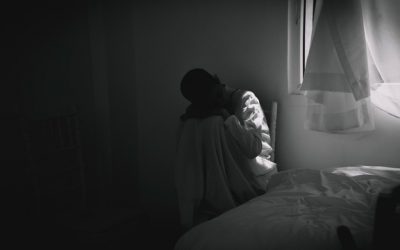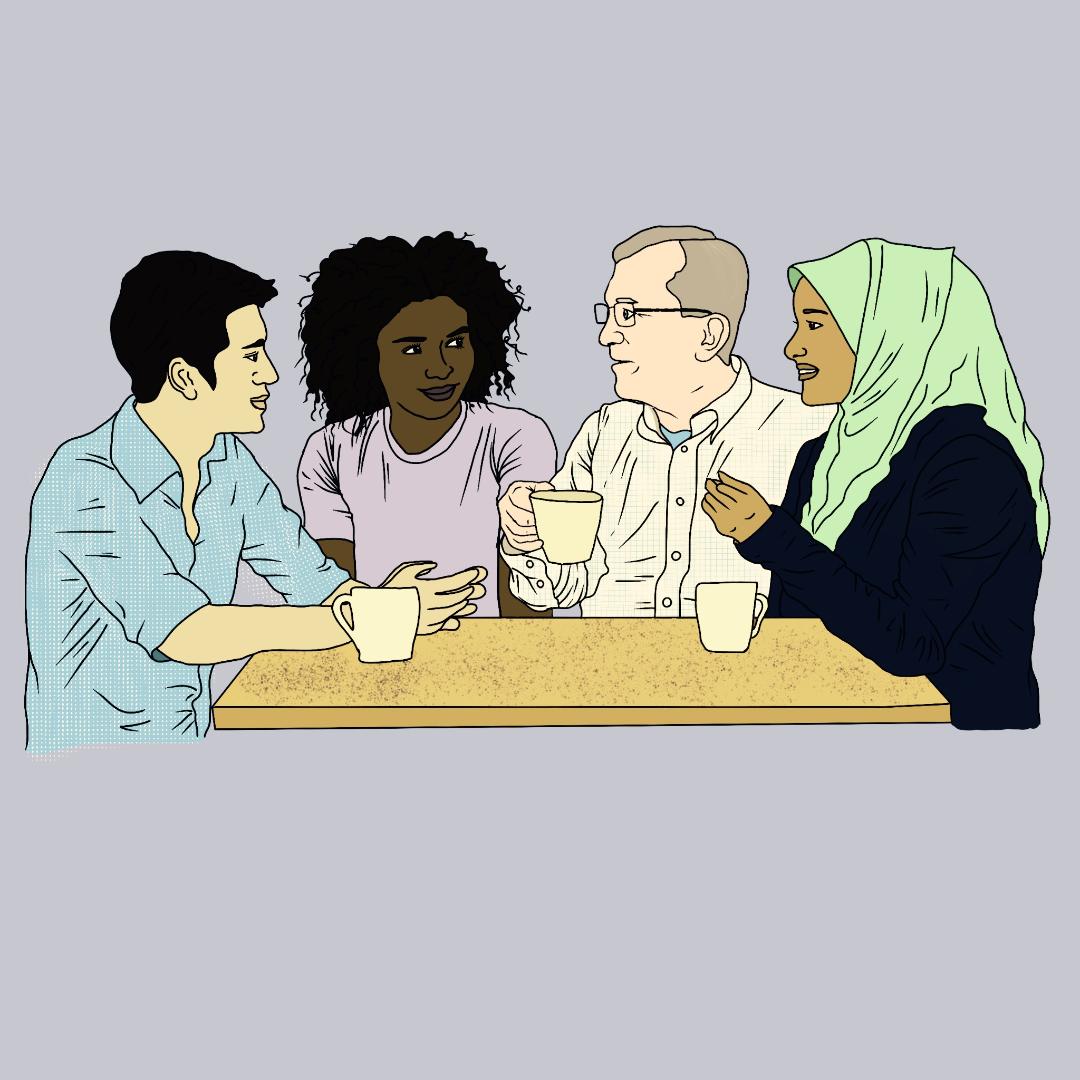Trust and Belief: A world of difference for LGBTQ+ refugees
Sinéad Mangan-Mc Hale LinkedIn
Aloysius Ssali, a proud member of the LGBTQ+ community, is the founder and leading member of the Say It Loud Club, a grassroots charity providing practical support and a welcoming environment to LGBTQ+ refugees and asylum seekers in the UK. Aloysius founded the club in 2010, having finally been granted asylum in the UK. As well as running the club, Aloysius used to work with the NHS providing healthcare services to the British public. TGIUK spoke with Aloysius to understand the disturbing challenges that face LGBTQ+ refugees as they transit from their country of origin to find a secure and safe place in the UK.
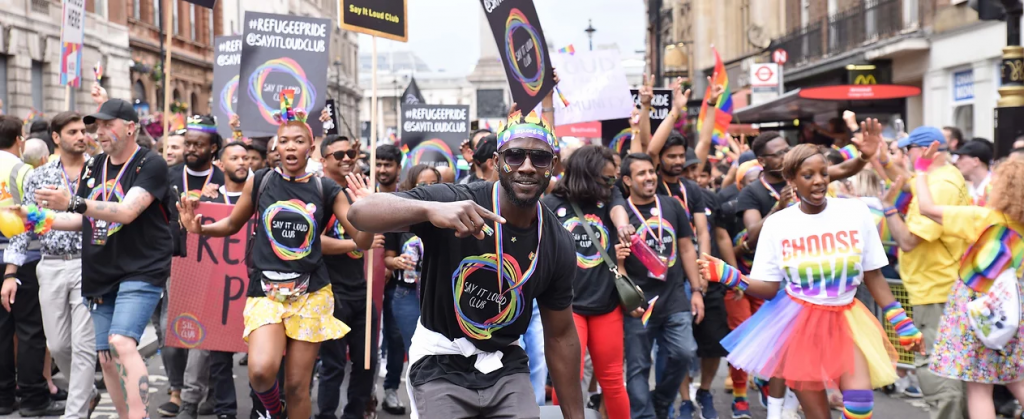
There are many times in our lives when we need an advocate, someone to support us, give us courage, someone who sees us not just as we are but as we could be. For members of the LGBTQ+ community seeking asylum in the UK, Aloysius Ssali, along with his volunteers at the Say It Loud Club, are the perfect advocates. Within minutes of talking with Aloysius, it was clear that he is passionate about supporting members of the LGBTQ+ community and is equally determined to bring about necessary changes in the immigration process, a process that is particularly traumatic for these people.
Being granted asylum based on sexual orientation or gender identity is relatively new in the UK. While asylum claims based on sexual orientation or identity were first protected in the UK in 1999, it was not until 2010 that the landmark ruling for two independent men, HJ and HT, granted asylum. Previously, the UK could and did refuse asylum based on sexuality, instructing LGBTQ+ refugees to return to their home country and hide their sexuality to avoid persecution. It is questionable if any political refugees are asked to return to their country and avoid persecution by keeping their politics and activism “in the closet”.
While the law has changed, the process of applying for asylum under these circumstances is still traumatic and invasive. Despite the judges in the landmark case ruling that compelling a homosexual person to pretend that their sexuality does not exist or that to suppress their behaviour violates their fundamental human rights, future applicants were not necessarily treated with respect or dignity. It became a situation of having to ‘prove your case’, providing concrete evidence of your sexuality or gender identity.
Aloysius lived through this experience and described his application process as humiliating and distressing, where he felt like a criminal rather than a refugee. Having endured this trauma and being granted, he felt he had to do something to help others going through the same process. He explained that he knew it was his responsibility to use his experience as a means to help others in similar situations.
“There are few role models for gay refugees to relate to, particularly of Black, Asian or Minority Ethnic background. Perhaps it is because of long-standing cultural restraints, but there are few well-known openly gay black men or women in the UK. I felt my path would have been easier if I had someone I could relate to, and so when I was granted, I decided that I would be proud and gay and support anyone coming to the UK dealing with their sexuality or identity.”
In 2010 the Home Office transitioned from a ‘hide in the closet’ approach to one of ‘disbelief’, requiring refugees to provide detailed evidence to prove their sexuality. This process allowed government officials to ask invasive questions around intimate and personal sexual practices carried out by gay men and women. Applicants had to endure intense humiliation as they were ‘forced’ to describe explicit sexual acts to untrained officers, some of whom were homophobic and racist. These officers, managing their own prejudices and bias, were responsible for deciding if you lived a life of freedom in the UK or returned to countries where homosexuality is illegal and punishable by torture, imprisonment, or death. According to the Human Dignity Trust, there are still 71 jurisdictions that criminalise private, same-sex, consensual sexual activity, and 11 where they can, and do, impose the death penalty.
“You cannot begin to imagine the trauma refugees face in having to discuss their sexuality with complete strangers. For many, they have spent their lives suppressing their sexuality, fearing persecution by the authorities, shaming their families, or being cast out by their community. Then to live a free life, they have to say it out loud that which they have kept secret, to strangers, to people in authority, representing the very same type of people they have lived in fear of, or who have brutalised them because of who they are. It is almost impossible for many to verbalise their circumstances in their own language, never mind English. Many of these refugees have fled an environment of physical torture, only to face the emotional torture of having to convince someone of their sexuality.”
In recent years, the approach has improved slightly but is still disturbing. Now, rather than providing explicit evidence on sexual practices, refugees must provide proof of their emotional journey of realising their sexuality or identity. If applicants cannot provide that narrative, the case can be refused, and the refugee deported.
“The emotional journey might be less explicit, but it still requires a great deal of information. The applicant must give details of events, circumstances, and situations on the realisation journey of their sexuality. The Home Office expects you to explain how old you were when you first realised your sexuality, where you were, who you were with, who you had your first relationship with, and why this person – very private and intimate details. These officers do not realise that when you live in a country where your sexuality could result in being imprisoned or worse, you do not keep copious notes or diary entries on your ‘first love’. Not only would you put yourself in danger, but you could be putting the other person at risk, not to mention the shame you might bring to your family. To then recall these details to people in authority who can decide your fate is unbelievable and virtually impossible.”
Recalling the details may be challenging but having the confidence to communicate this information is another issue. It is no surprise to learn that most people seeking asylum are not filled with confidence. Many have lost self-esteem, feel defeated and let down and have used the last of their courage in making the physical journey seeking asylum. Having to then make a claim for sanctuary based on their sexuality is daunting. And this is where Say It Loud Club provides vital support. They meet with applicants and provide emotional support and a sense of safety to discuss their circumstances. Often, it is an opportunity for a refugee to ‘come out’ and to recognise to themselves and others their sexuality or identity. Aloysius, and his team of volunteers, many of whom have gone through the same experience, can relate to the refugee and allow them to talk without judgement.
“It is vital that applicants are allowed to practise what they are going to say to the Home Office, to learn how to articulate their journey, to recall the dates and circumstances that the Home Office insist on knowing. They begin to recall things that they initially did not realise were important by talking through their story. Still, because we have lived these experiences, we can spot this and encourage them to elaborate on the details. While members of the Say It Loud can accompany a refugee into the interview, we only provide emotional support. We are not allowed to speak, so it is important that the applicant can get their story over clearly and indisputably. And even using an interpreter can be challenging, as things are often lost in translation, and we have had situations where a refugee freezes up if they recognise the interpreter or realise they come from their own culture. All their inherent fears come back to the fore.”
Proving your sexuality or identity as a single person is a daunting task, but for men and women who have families, they face a wall of disbelief, and many refugees recount being questioned on how they can be gay if they have children. Even though many gay couples are raising a family, not least high-profile celebrity couples, Home Office officials still question the honesty of refugees who have children. There is no recognition that these men or women might have been forced into marriage to save face and meet societal demands, or they might have been struggling with their sexuality and entered the marriage to convince themselves they were ‘normal’. For refugees who come from a strong religious culture, whether Catholic, Muslim or Anglican or any other doctrine that condemns non-heterosexual behaviour, being their authentic self is impossible and would force them and their family to a life of shame and being ostracised from their core community. The teachings of various churches on this matter can cause significant mental and emotional conflict and for many, opting to fake a heterosexual existence is the only answer. Yet, when they arrive in the UK seeking asylum, they want to be their genuine self and live the life that allows them to be sexually guilt-free.
Many changes are required in the refugee process, which would allow refugees seeking asylum based on their sexuality or gender identity to be treated with dignity and respect. However, it is disappointing to see some of the new Home Office proposals for a new asylum system. Changes include requiring all evidence to be submitted at the first point of an asylum application or setting a ‘higher’ standard for testing whether an individual has a ‘well-founded fear of persecution’ to list just a few of the proposed changes. While the legal framework in the UK has a long way to go, the Say It Loud Club continues to provide practical and emotional support to refugees making a claim. They also offer a social environment to LGBTQ+ members to relax, meet people and enjoy being themselves in safe surroundings. The Club provides face-to-face support, or for refugees living outside of London, they can meet via ZOOM or TEAMS. Or they can meet with one of the teams of Say It Out Loud ambassadors who have lived experiences and go around the country visiting people in need providing support in appeal interviews or tribunals.
I asked Aloysius to sum up the situation for LGBTQ+ refugees.
“Trust is a key issue for LGBTQ+ refugees, trust in themselves and trust in the authorities. We have come from countries where our sexuality or our gender identity is a criminal offence and where we have been persecuted, imprisoned, tortured or worse. The UK has always been held up as a symbol of freedom, sanctuary, a place where people can live freely. Over recent years, there has been a change in attitude toward refugees, which is not always welcoming. This change particularly impacts LGBTQ+ members, where we have seen increased homophobic attacks. We need to have the trust of policymakers, and people of authority in the Home Office, education, healthcare, housing sectors, and the public. The UK is a great country and one I am proud to be a member of, as I am also proud to be a member of the LGBTQ+ community. Together, we can break down the barriers.”
The Say It Loud Club are working to amend the proposed Nationalities and Borders Bill to ensure much needed protection for LGBTQ+ refugees and migrants coming to the UK. If you would like to support these necessary amendments, and are comfortable in signing a petition, please use this link.
If you are an LGBTQ+ refugee seeking support, the following organisations can provide support and guidance.
If you are a member of the LGBTQ+ community or are unsure of your sexuality or gender identity, or a member of your family is LGBTQ+, the following organisations can provide support, answer questions, and help you in the right direction.
If you have lived experience of being an LGBTQ+ refugee, the Say It Loud Club is looking for volunteers to work with new refugees. They recognise that opening up for the first time is challenging but that it is easier if talking to someone who understands; understands your sexuality, your gender identity, your language, and, if possible, who looks like you. If you can spare some time and are willing to be trained by Aloysius, please email him on info@sayitloudclub.org or by phone 07478 801676 |

